 Image search results - "nenez" Image search results - "nenez" |
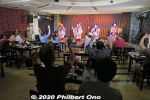
Famous Nenes/Nenez perform at Live House Shima-uta on most nights. Third floor of Haisai Okinawa Building on Kokusai-dori.http://livehousesimauta.com/
|
|

Doesn't feel like I'm in Okinawa until I see and hear Okinawan music. Well-known Okinawan female quartet since the 1990s.They played their original hit songs like "Kogane no Hana" (黄金の花), Okinawan folk favorites like "Tinsagu no Hana" (てぃんさぐの花) and tracks from their latest CD.
|
|
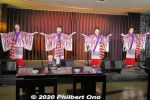
The show is from 7 pm to 10 pm when they play three sets (two intermissions) for a cover charge of only ¥2,300 (as of Nov. 2020). Food and drink are extra.http://livehousesimauta.com/
|
|

The show is great with colorful costumes and singing. There's also audience participation. Not allowed to go up and dance though.
|
|

The Nenes have been around since the 1990s, made famous when Sakamoto Ryuichi featured them in his Okinawan CDs and took them on a concert tour.
|
|
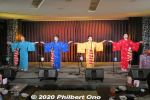
They've lasted this long thanks to occasional personnel changes. The current members are the sixth incarnation of the group.
|
|

In recent years, they've been spelling their name in English as "Nenez." However, the original spelling is "Nenes" which is how I still spell their name. Not to be confused with the Hawaiian goose. "Nene" means "sister" in Okinawan, equivalent to "ne-chan" in Japanese.
|
|
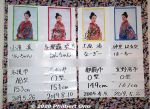
From left to right, the current Nenes/Nenez are Kohama Rin (小濱凜), Yonaha Ruon (与那覇琉音), Uehara Nagisa (上原渚), and Nakazato Haruhi (仲里はるひ). ネーネーズMost are in their 20s, and two of them have grandmothers who were the original Nenes from the early 1990s. Amazing! (As of Nov. 2020.)
|
|
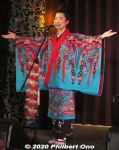
Kohama Rin (小濱凜) wears a bingata kimono. 紅型 They wear different Okinawan costumes for each set. Colorful eye candy. Wish they also explained the Okinawan design of their gorgeous kimono. Crowd-pleasing entertainment.
|
|

She plays the sanshin (三線), another icon of Okinawa. The three-stringed sanshin came to Okinawa (Ryukyu Kingdom) from China in the 16th century. It later evolved into the shamisen on mainland Japan.
|
|

The sanshin is Okinawa's main musical instrument. What the sanshin is to Okinawa is what the ʻukulele is to Hawaii. Famous for the snakeskin (python) covered body, but cheaper sanshin might have fake snakeskin which is easier to care for.
|
|

Still photography is allowed, but no videos.
|
|

Rin also plays the ʻukulele as a hobby.
|
|
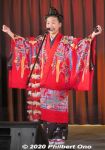
Yonaha Ruon (与那覇琉音) is the youngest member and plays this Okinawan instrument called the "sanba" (三板). It's three small pieces of wood strung together to make clacking sounds. Love the sanba.
|
|
|
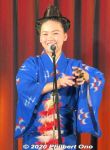
Okinawan instrument called the "sanba" (三板). It's three small pieces of wood strung together to make clacking sounds.
|
|
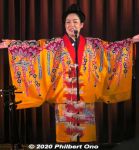
Uehara Nagisa (上原渚) is the oldest and current Nenes leader. Member since 2004.
|
|
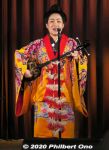
The sanshin is a modest instrument, used to complement the singing. Okinawan folk songs focus on the singing, not the instruments. This is opposite from the Tsugaru-jamisen (shamisen) in Aomori Prefecture which uses the showy jamisen as the main focus with long jamisen instrumentals.
|
|
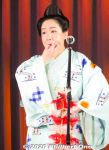
Uehara Nagisa (上原渚) plays another common Okinawan musical instrument: the finger whistle (yubi-bue 指笛).
|
|
|
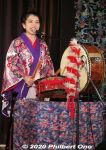
Nakazato Haruhi (仲里はるひ) plays many instruments, centering on the sanshin and taiko drums.
|
|

Taiko drums is also big in Okinawan music.
|
|
|
|
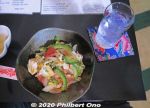
The food and drinks at Live House Shima-uta are good. This is goya-chanpuru (¥700), my Okinawan favorite. You can eat during the two intermissions.
|
|

Live House Shima-uta menu. Reasonable prices. Official website usually has a coupon for a free side dish.
|
|
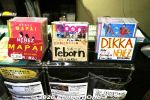
The club had their CDs on sale, but they weren't autographed.
|
|
|
|
|